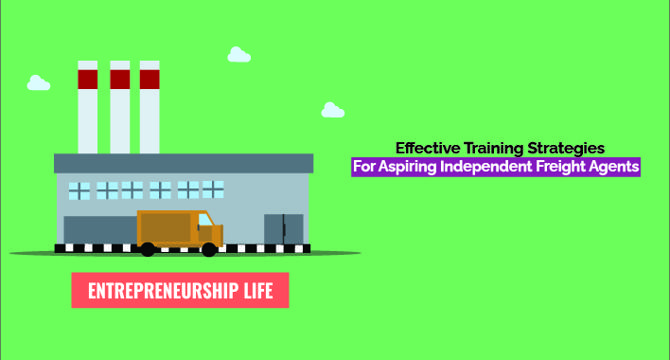Entrepreneurshiplife
1w
88

Image Credit: Entrepreneurshiplife
Effective Training Strategies for Aspiring Independent Freight Agents
- Becoming an independent freight agent requires passion, strategic learning, and an acute sense of industry dynamics.
- Understanding the role of an independent freight agent is crucial as it is more than just about moving goods.
- It encompasses tasks such as assessing freight rates, optimizing operational processes, and ensuring seamless communication amongst logistical partners.
- Balancing between in-person and online training depends on personal learning preferences and lifestyle demands and should be tailored to create a unique educational journey.
- Critical skills, such as effective communication, negotiation, organization, and familiarity with cutting-edge logistics software, serve as the backbone of any successful freight agent.
- Industry certifications, such as Certified Transportation Broker (CTB), significantly enhance marketability and position agents as trusted experts in the eyes of clients and employers alike.
- Building a solid professional network is invaluable, offering guidance, advice, and insights often only gained through experience. Networking opportunities, such as industry conferences, workshops, and online forums, further aid in staying current with logistics developments and trends.
- Engaging with free resources, such as online communities, webinars, and books authored by logistics thought leaders, encourages the continued learning and adaptation essential to a successful career in freight logistics.
- Practicing through real-life scenarios and staying up-to-date with industry news are essential components of effective training strategies for aspiring independent freight agents
Read Full Article
5 Likes
For uninterrupted reading, download the app